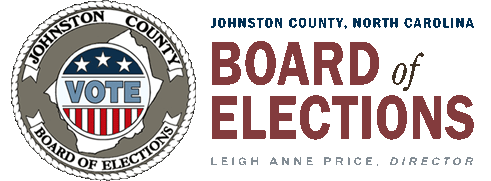Voter Etiquette
Common Sense Guidelines that Apply to All Voters
- Be courteous and respectful.
- Common sense will provide an answer to most questions.
- Don't underestimate people with disabilities. Physical disability DOES NOT equal lessened mental capacity.
- Be considerate of the extra time it may take for a person who is disabled or elderly to get things done, and give unhurried attention to a person who has difficulty speaking.
- Always speak directly to the voter, and not to a companion, aide, or sign language interpreter. Remember that any disabled voter may be accompanied by, and receive assistance from, another person of their choice in the voting booth, unless that person is an employer or agent of the voter's employer, or officer or agent of the voter's union.
- Ask before you help. The person may not want any assistance. Don't insist - take "no" for an answer.
- On the other hand, don't be shy about offering assistance. Your courtesy will be appreciated.
- If your polling place is in a building with several routes through it, be sure that there are sufficient signs to direct a person to the most accessible way around the facility.
Consideration For Voters With Mobility Impairment
- Do not push or touch another person's wheelchair or equipment without prior consent. People using adaptive equipment often consider the equipment as a part of their personal space. You are also likely to break a wheelchair or piece of equipment with which you are not familiar.
- Ask before helping. Grabbing someone's elbow may just throw the person off balance. A person with mobility impairment might lean on a door while opening it. Quickly opening the door might cause the person to fall.
- Fasten mats and throw rugs down securely or move them out of the way. A person with mobility impairment could trip.
- Keep floors as dry as possible on rainy or snowy days.
- Keep the ramps and wheelchair-accessible doors to the polling place unlocked and free of clutter.
Consideration For Voters Who Have Speech Or Hearing Impairment
- A voter who cannot speak can give name and address by providing identification to the Precinct Official. The Precinct Official then reads the name and address out loud.
- Follow the voter's cues to determine whether speaking, gestures, or writing are the most effective method of communication.
- If speaking, speak calmly, slowly, and directly to the voter. Do not shout. Your facial expressions, gestures, and body movements help in understanding. Face the voter at all times and keep your face in full light (not back lit).
- Rephrase, rather than repeat, sentences that the voter does not understand.

Page last updated: November 6, 2023


